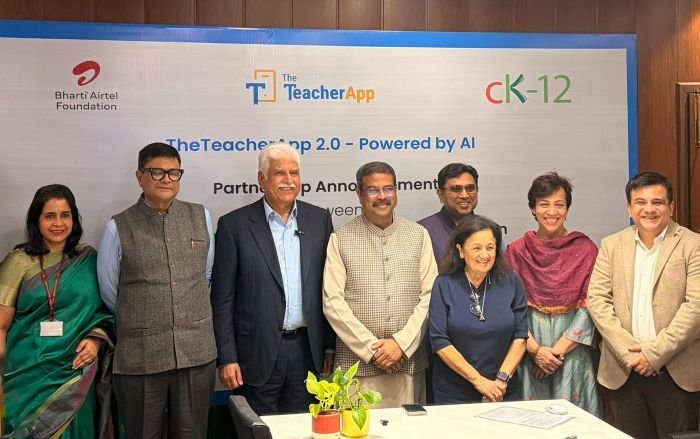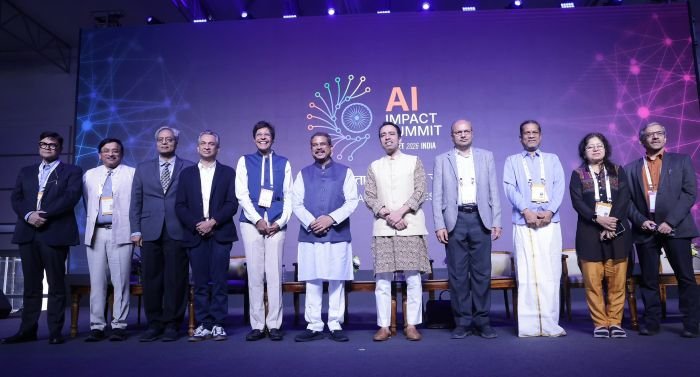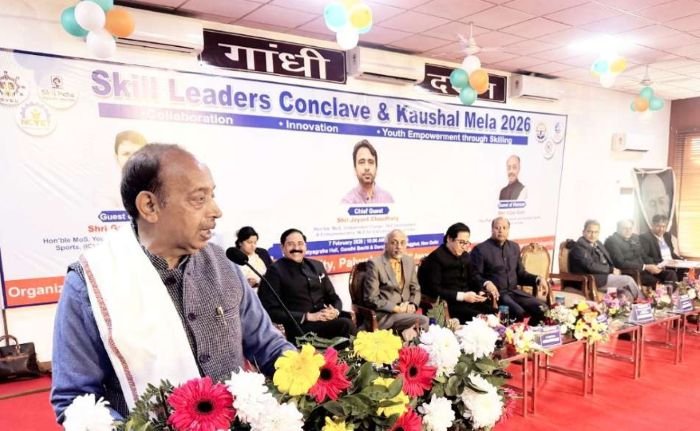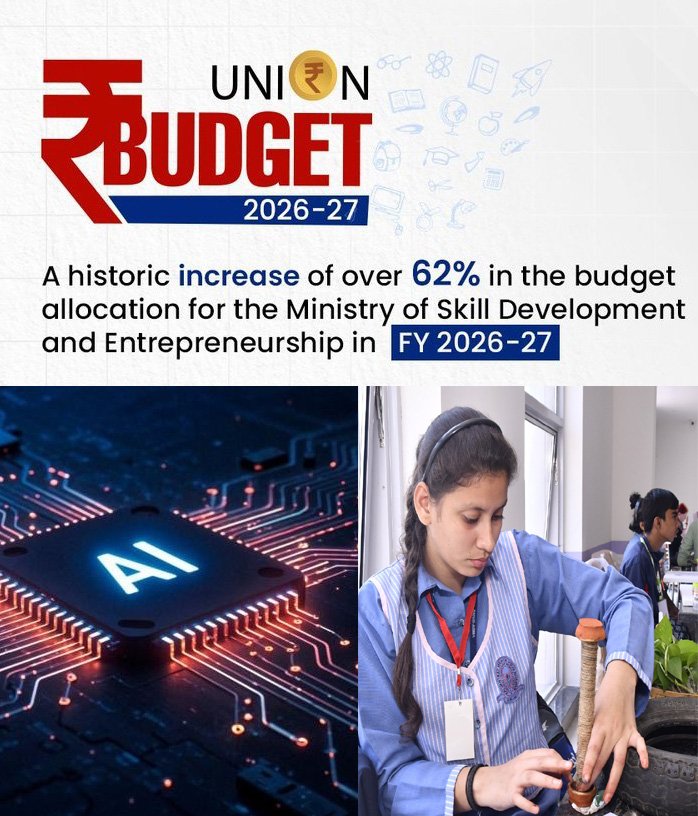
By Ramanujam Thirumalai, CTO, Global Products and Solutions (GPS), NIIT Ltd.
 A recent study found that 78% of employers consider fresh engineering graduates ill-equipped for the workplace. One of India’s Tier 1 IT firms cut its fresher intake by more than 70%—from 38,000 in FY23 to just 10,000. Across industries, onboarding delays for new hires are now stretching well beyond a year.
A recent study found that 78% of employers consider fresh engineering graduates ill-equipped for the workplace. One of India’s Tier 1 IT firms cut its fresher intake by more than 70%—from 38,000 in FY23 to just 10,000. Across industries, onboarding delays for new hires are now stretching well beyond a year.
And yet, opportunity is abundant. The World Economic Forum’s Future of Jobs Report forecasts that while 75 million jobs may be lost globally due to automation, 170 million new roles will emerge, demanding entirely new skill sets. In India alone, a NASSCOM report projects that we’ll need 9x more digitally skilled professionals by 2030. According to a Nasscom Aon report, India’s gig workforce is projected to reach 23.5 million by 2030.
For decades, young graduates have followed a familiar path—college, degree, job. But the world has changed. AI writes code, chatbots resolve customer queries, and hiring now prioritizes skills over certificates. The theme of this year’s World Youth Skills Day captured this trend. In this new reality, can legacy college education still prepare youth for the future? Perhaps yes, but only if our education ecosystem develops the understanding around the skilling imperative.
Let us explore how outcomes-based skilling can help today’s youth realize their true potential and build a brighter, employment-first future.
#1. The industry’s new mandate: Employment-first skilling
In the past, companies hired fresh graduates and trained them on the job. But today’s high-speed, high-performance business environments offer no such luxury. Teams no longer have time to source, hire, train, bench, shadow, and then deploy new talent.
Top consulting firms like McKinsey and BCG now recommend skill-based hiring. Companies are shifting from post-hiring training to pre-hiring internships, assessments, and work-like simulations. Increasingly, gig models are being preferred—where talent is hired for what they can do, not just what they know.
In this new world, skills are the new currency, and youth must be equipped to contribute from day one.
#2. How Outcomes-Based Skilling helps bridge the learning-employment divide
College education today remains theory-heavy and topic-driven, often aligned with textbooks rather than the real world. But in the workplace, problems are not presented as chapters. Tasks rarely come with a list of which concepts to apply.
That is why outcomes-based skilling—where learners complete real-world tasks and acquire knowledge through solving—is essential. It builds confidence, practical ability, and contextual understanding.
Recognizing this, NEP 2020 recommends colleges partner with private skilling organizations to bridge the gap between academia and employability. This is the essence of employment-first skilling.
#3. The rising need for students to choose courses with real ROI in terms of employability
Digital technologies are reshaping every domain, business, education, healthcare, even governance. The demand for job-ready, multi-skilled talent is rising sharply. Recruiters now look for candidates who not only understand the fundamentals, but also demonstrate:
- Digital proficiency
- Professional and communication skills
- Cross-functional collaboration
- Relevant job-ready competencies
- And the ability to use GenAI tools to boost productivity
In this landscape, youth need to choose the right career program. Programs that offer progressive learning, real-world project exposure, hands-on practice, learning through feedback & correction, and work-like challenges deliver far higher returns.
Based on NIIT’s recent placement data from 1,600+ learners, roles like Full Stack Developer, Digital Marketer, and Data Analyst deliver 300% ROI or higher in terms of salary-to-investment ratio.
#4. The shift towards a unified Skilling + Hiring ecosystem
The future belongs to ecosystems where skilling and hiring converge. Youth today must build portfolios and not just resumes. Imagine college students completing real projects, showcasing them, and being hired based on demonstrated capability rather than academic grades.
Whether for full-time jobs or gig roles, employers increasingly seek talent with verifiable skills, project experience, and the ability to hit the ground running.
Study. Explore. Skill. Build. Experience. Repeat. This is the new mantra for accelerating one’s career.
#5. NIIT’s approach to tracking tangible learning outcomes and employment success
NIIT’s skilling philosophy is simple yet powerful: outcomes-focused, practitioner-designed, and AI-embedded. Our programs are designed backward from real job roles, using employer input and job descriptions as the blueprint.
Through deliberate practice, learners work on simulations that mirror first-year job challenges. Our AI-powered platforms provide personalized feedback, conduct unit-level assessments, integrate practice of professional skills, and enhance readiness.
GenAI is seamlessly integrated—skilling learners not just on the core competencies but also to leverage GenAI for productivity.
Our flagship youth skilling initiative, gNIIT, has empowered over 800,000 learners over the past two decades. The new digital avatar, gNIIT ex⁴—Explore, Expand, Excel, Experience—helps students:
- Explore digital tools early
- Expand their skillsets with cross-career skills
- Excel through specialization
- Experience workplace simulation with internship
Students graduate not just with a degree, but with a dual qualification. Their college degree and an industry-recognized gNIIT certification—making them confidently job-ready.
#6. Conclusion: A call to action
Let us encourage youth to choose—and choose wisely. Let us shift from passive waiting to purposeful action. Instead of “watching and hoping,” let us inspire youth to skill up and show up. Let us encourage them to learn by doing, not just watching. To invest time and money to acquire relevant skills, build a portfolio, and show experience—not just collect grades. To graduate not just with a certificate, but with capability, confidence, and character.
The future belongs to those who are ready to contribute from day one. Let us commit to building that future—where every graduate emerges equipped not just with knowledge, but with the skills and mindset to succeed in India’s evolving digital economy.








